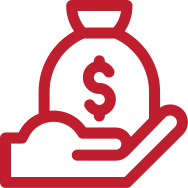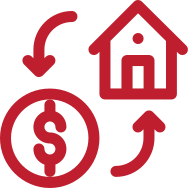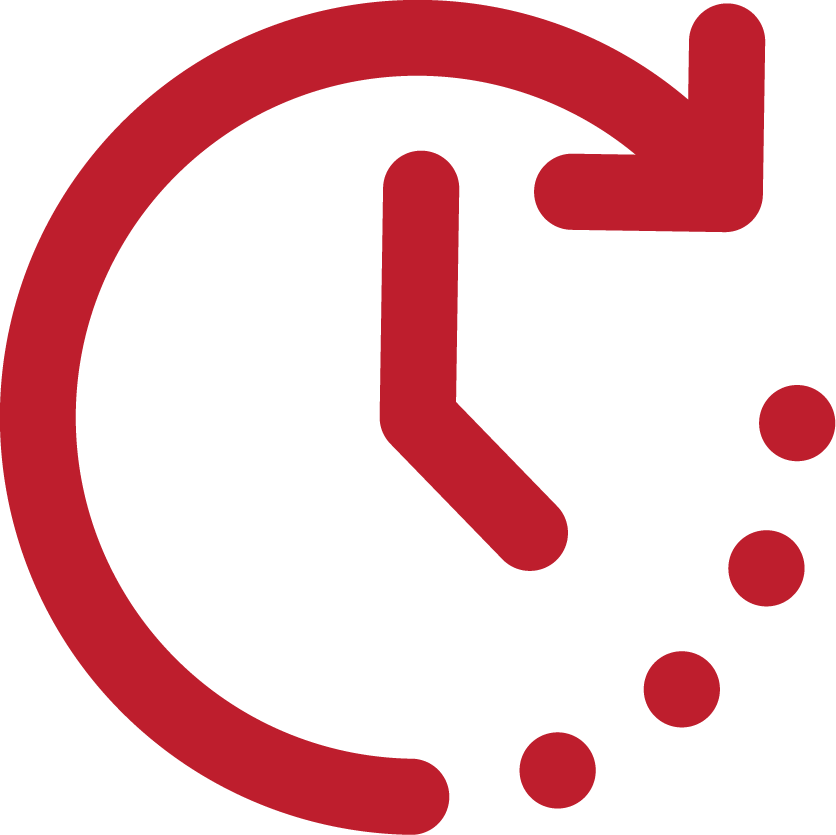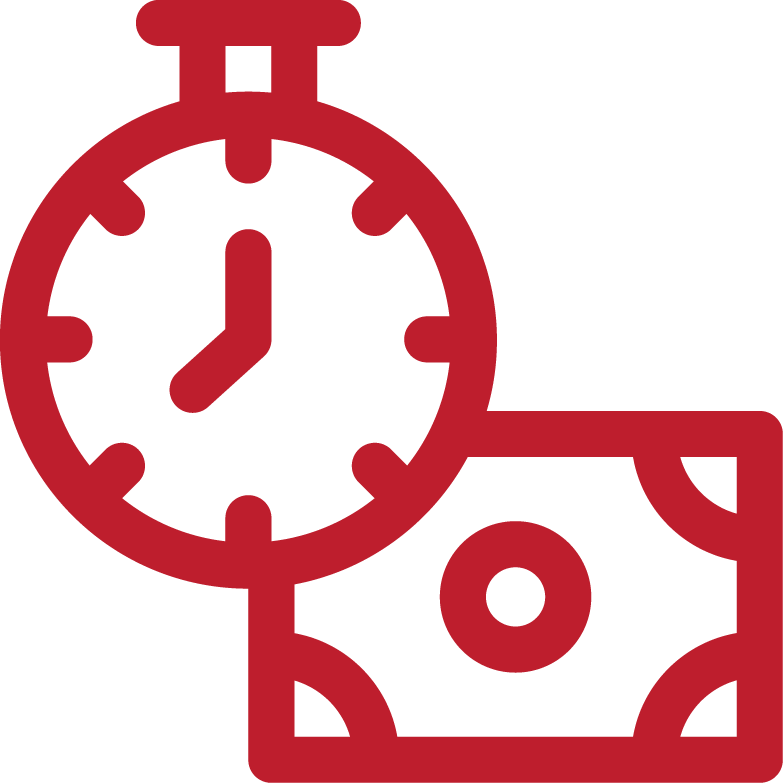Term Loans
Obtain lump sum funding and repay it over a flexible term.
How Do You Qualify for Term Loans?

1+ Year in Business

Assets or Collateral
What Is a Term Loan?
How Do Term Loans Work?
How Can I Use My Term Loan?
How Do You Qualify for Term Loans?
Pros and Cons of Term Loans
How to Apply for a Term Loan for Business
What Is a Term Loan?
What Is a Term Loan?
A term loan provides borrowers with a fixed amount of capital that must be repaid over a specified period. The total amount, including interest, is repaid through regular payments, which can be monthly, weekly, or daily, depending on the financing terms.
Businesses use term loans to address various challenges and seize opportunities. Whether you need to bridge a payment gap, hire new staff for an upcoming project, or invest in a marketing initiative, this type of financing can provide the necessary funds to achieve your goals.
Unlike private equity, debt financing offers capital without requiring an exchange of ownership. You maintain full control of your business after securing a term loan, with the only risk being the financial consequences of late payments or defaulting.
How Do Term Loans Work?
How Do Term Loans Work?
Term loans function exactly as their name suggests: you receive a “loan” that you repay over a set “term.”
You can choose between a short-term or long-term repayment period, depending on your business needs and financing goals. Short-term loans are typically used for revenue-driving opportunities expected to yield a return within the repayment period. Conversely, long-term financing is better suited for major projects or investments that won’t provide an immediate payoff.
Some lenders require collateral to secure the loan. Secured term loans often have less stringent eligibility requirements and lower interest rates, but not all businesses can offer collateral. Unsecured loans are usually preferred but come with stricter eligibility requirements and, in some cases, higher interest rates.
Remember: while it’s easy to use the funds, repayment can be challenging. Prioritize repayment at all stages. Making consistent, timely payments to your lender is crucial for maintaining good financial standing. One or two late payments may not have a significant impact, but missing payments entirely puts you at risk of defaulting on the loan.
How Can I Use My Term Loan?
How Can I Use My Term Loan?
Entrepreneurs secure term loans to address challenges or seize opportunities in their businesses. Here are a few common uses:
Cover Expenses
The cost of inventory, payroll, rent, and other operational expenses can strain your liquidity and hinder growth. Funding allows you to cover these expenses and focus on other areas of your business.
Bridge Payment Gaps
Late customer payments can disrupt your cash flow. A term loan provides a lump sum of cash to cover these costs until invoices are paid.
Increase Purchasing Power
Funding enhances your liquidity, enabling you to make larger purchases. Instead of struggling to afford a sizable purchase upfront, you can manage the payment over time and preserve your cash flow.
Invest in Growth
Growth is challenging and often expensive. Financing allows you to invest in your business and capitalize on opportunities that arise.
How Do You Qualify for Term Loans?
How Do You Qualify for Term Loans?
Each lender has unique qualifications tailored to different business needs. Here’s an overview of the two main types:
Banks and Credit Unions
These are considered traditional lenders and are often the first choice for entrepreneurs:
- Criteria: Typically require a credit score of 700+, annual revenue of $500,000+, and at least 2 years in business.
- Products: Offer term financing with low interest rates and favorable terms.
- Challenges: Approval can be difficult due to strict eligibility criteria.
Private Lenders
Also known as non-bank lenders, they provide alternative financing options:
- Criteria: Some may not enforce strict credit score minimums but generally require a score of 580+, $500,000 in annual revenue, and at least 1 year in business.
- Products: Offer a variety of financing solutions with less restrictive eligibility and faster funding times.
- Considerations: Interest rates may be higher compared to traditional lenders.
At National Business Capital, we cater to all credit profiles, offering diverse financing options to meet various business needs.
Pros and Cons of Term Loans
Pros and Cons of Term Loans
Business term loans offer several benefits, but they may not suit every entrepreneur’s needs:
Pros
- Lump Sum Payment: Provides a lump sum for business investment.
- No Equity Exchange: Retain full ownership without giving up equity.
- Credit Building: Timely repayment can strengthen your business credit score if the lender reports to credit bureaus.
- Consistency: Fixed repayment schedule helps in financial planning.
Cons
- Less Flexible: Not as flexible as business lines of credit.
- Additional Funding: Requires taking out another loan for additional funds.
- Interest Rates: Rates can be higher compared to other financing options.
- Collateral Requirement: May require offering collateral for security.
Term loans are ideal for planned projects where the funding amount is known upfront. They lack the flexibility of business lines of credit but provide a structured approach to managing larger expenses over time.
How to Apply for a Term Loan for Business
How to Apply for a Term Loan for Business
Entrepreneurs can secure term loans from banks, credit unions, private lenders, and FinTech marketplaces. Each organization will offer different rates, terms, and funding amounts, so it’s recommended to shop around and receive multiple offers to ensure you’re getting the best deal.
Get In the Right Headspace
Before you start applying to lenders, though, there are a few important questions you should ask yourself:
- How much do I need?
- When do I need it?
- What am I using the money for specifically?
- Do I have a plan on how I’ll use the funds
- How long will I need to repay the borrowed amount?
- How much can I afford to pay for my financing?
These will get you into the right headspace and, more importantly, ensure you’re entering the situation with a plan. Once you’ve done this, it’s time to start applying to lenders.
Come Prepared
The application process for business term loans differs from lender to lender, but you can expect to provide the following information:
- At least one full year of business bank statements
- Two – most recent – business tax returns
- Balance sheets
- Cash flow statement
- Profit and loss statement
- Business debt schedule, if applicable
- Details of accounts receivable and accounts payable
- Description of and proof of ownership for collateral
- Proof of business insurance
- Licenses, permits, articles of incorporation, and other legal documents
- Business certificate
- Detailed personal financial information
- Complete business plan, including a detailed description of your business, products or services, structure, management, and marketing plan, as well as financial projections
What to Expect
Each of these documents will help the lender understand your business as a whole. Once submitted, they’ll begin their review process and determine what terms you qualify for. This time period is commonly referred to as the “underwriting process.”
The lender will return with an approval or denial of your application. If you’re approved, you’ll receive a contract with a funding amount, interest rate, and repayment schedule your business qualifies for. There’s some room for negotiation, so feel free to push back and ask why your contract is a certain way.
After you’ve applied with multiple lenders, found the best one, locked in your contract, and received your funds, you can start leveraging them for your opportunity or challenge. Don’t get carried away with spending; Stick to your plan and invest strategically, taking note of how you’ll repay the borrowed funds with each investment or purchase.
Lowest Rates, Longest Terms, & Highest Amounts

Funding Amount
Up to $100MM

Repayment
Up to 25 years

Time to Fund
1 to 7 days
Types of Term Loans
| Short-Term Loans | Short-term loans have expedited repayment periods between 6 and 18 months. These are best for situations where you’ll see a near-immediate ROI from your financing, like purchasing the upfront costs needed for a project or picking up bulk inventory for a holiday season. |
| Intermediate-Term Loans | |
Discover the Industries That Benefit From Term Loans & Financing
Construction Term Loans
Wholesale/Distributor Term Loans
eCommerce Term Loans
Hospitality Term Loans
Frequently Asked Questions
A term loan is a specific amount of money lent to a borrower by a lender, with repayment scheduled over a predetermined period. The loan begins with a start date when the funds are deposited into the borrower’s business bank account, and it concludes on an end date once all principal and interest have been paid off.
Borrowers may have the option to repay the loan before the term ends, potentially lowering their overall cost of capital, depending on the lender’s terms. Term loans are commonly used for various business purposes such as inventory purchases, business expansions, renovations, working capital, and more.
What Is the Difference Between a Loan and a Term Loan?
There’s essentially no difference: Term loans are a type of financing where the borrower makes regular payments toward the principal and interest over a specified period.
Other types of financing, like revenue-based financing, offer a lump sum of capital similar to term loans. However, they typically feature shorter repayment periods and approval criteria based on profitability rather than traditional credit metrics.
What Are the Common Attributes of Term Loans?
All term loans have the following characteristics in common:
- Lump sum payment
- Consistent repayment schedule
- Established start and end dates
- No equity transactions
- Potential to save on the cost of capital with early repayment
- Late payments/defaults damage your business’s creditworthiness and credibility with the lender
If you’re looking for a straightforward financing method, you should explore term lending and the options available to you.
